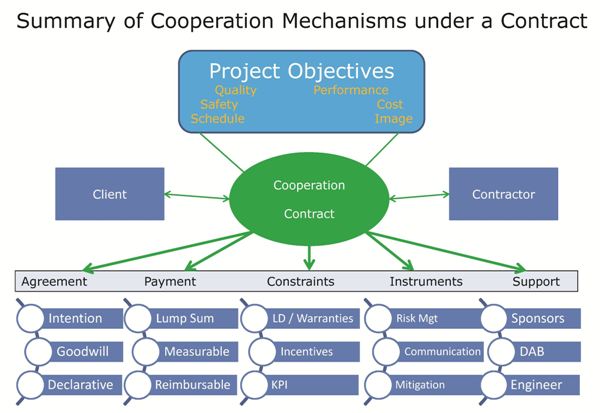Actual Cooperation between Client and Contractor is a key attribute of successful projects. However, Contracts rarely enforce directly an obligation to cooperate. How is it possible to get to this result indirectly? Our new Expert Corner paper by Thierry Linares, ‘How to Obtain Actual Cooperation in International Construction Contracts‘, gives unique insights into the various methods that can be used contractually to maintain the rights and obligations of the Parties while actually fostering effective Collaboration and thus, project success.
Cooperation is required to ensure project success. The limits of a mere Contract in ensuring the project’s objectives achievement is particularly blatant when looking at situations of non-cooperation: the terms and obligations set in the Contract can be respected to the letter and the project nevertheless ends up a total failure and a source of disputes. The paper explains in detail how Contract provisions can directly, or indirectly, increase the amount of Cooperation between the parties.
The main contract mechanisms to achieve Cooperation are financial instruments which will affect the balance of profit for the Contractor, and therefore are meant to share the interest in reaching the project objectives, reactively or proactively.
Don’t miss our new Expert Corner paper, ‘How to Obtain Actual Cooperation in International Construction Contracts‘!


